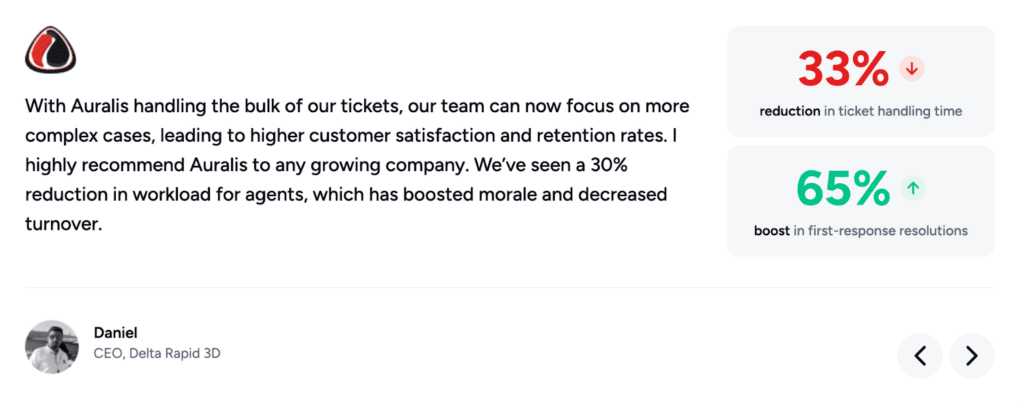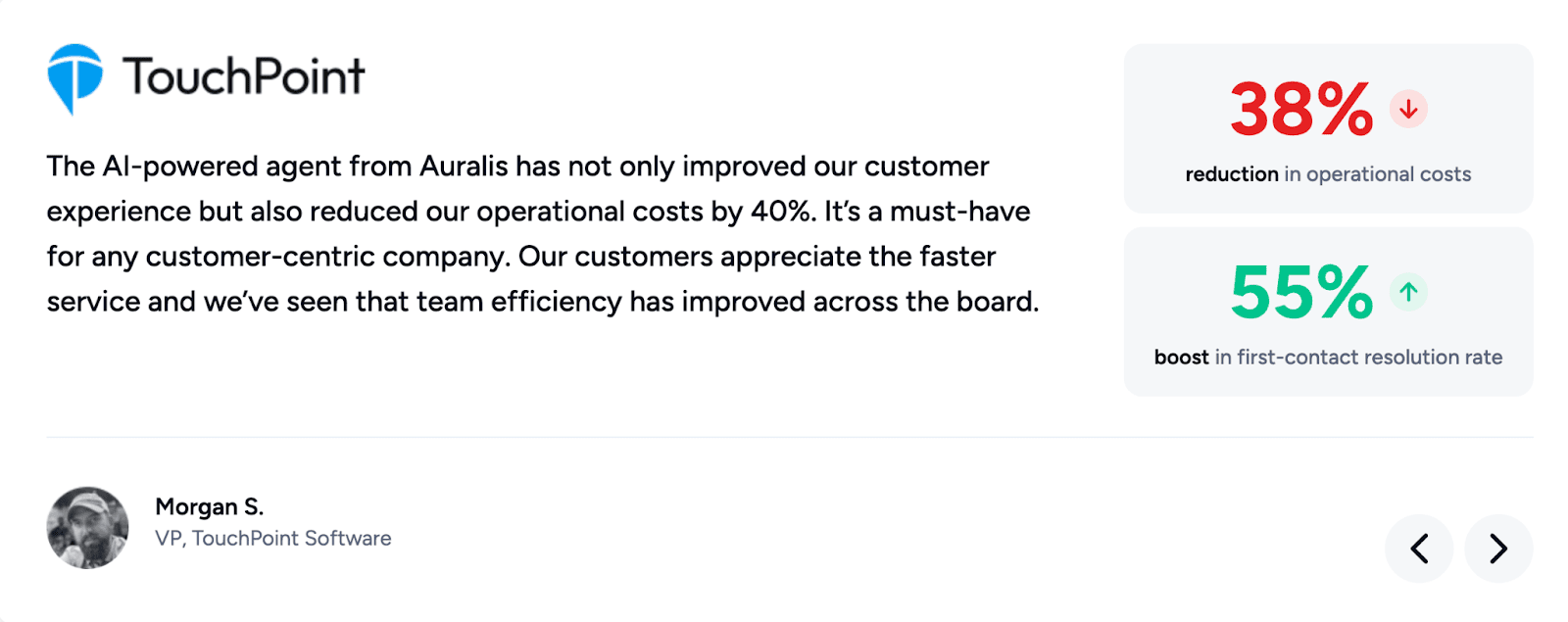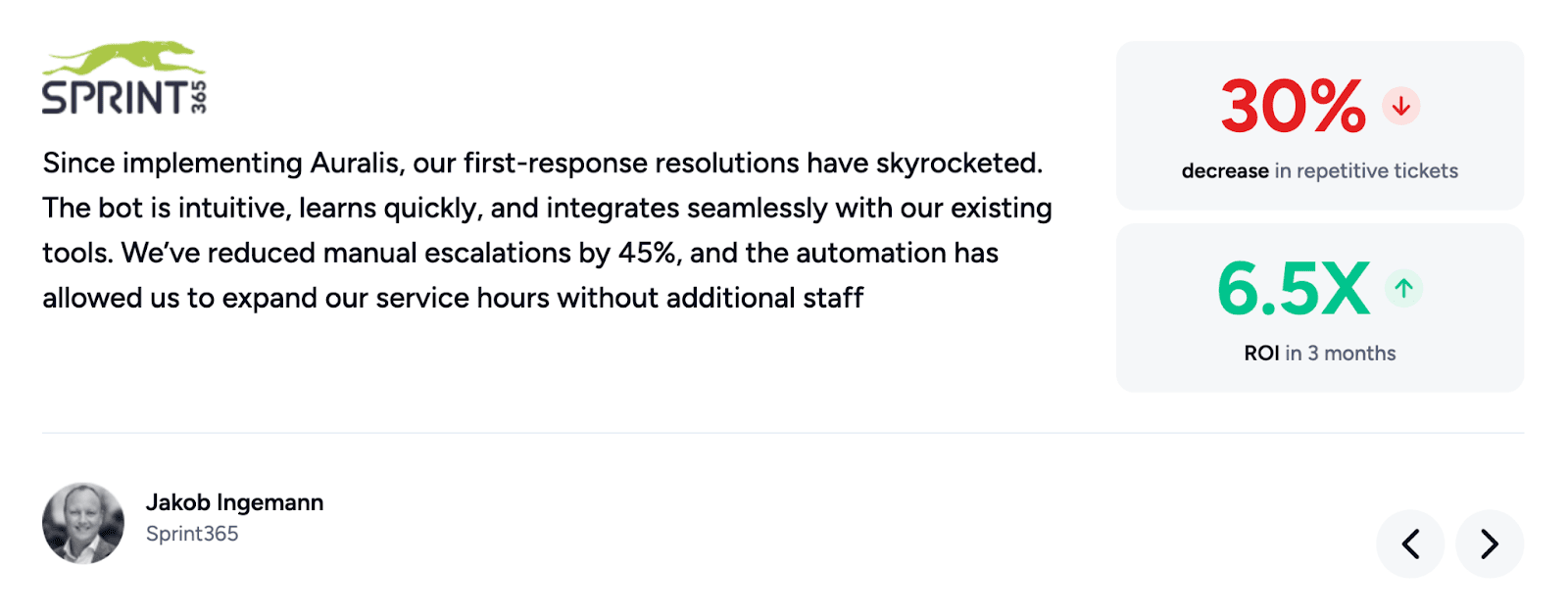According to a study by Cornell University, 87% of customer support center agents said their job causes stress.
With businesses becoming more customer-centric by the day, agents are continually pressured for faster turnaround times. They are required to handle frequent and complex queries with promptness across channels – which is leading to higher stress levels, burnouts, decreased job satisfaction, and compromised service outcomes.
In this post, we’re going to share how AI co-pilots can help reduce agent workload and stress.
Table of Contents
Understanding the role of AI co-pilots in customer support
AI co-pilots are designed to assist customer support agents in real-time. Unlike chatbots, co-pilots can operate autonomously and work as digital assistants that bring efficiency to the number of conversations an agent needs to handle. They can analyze customer queries, offer response suggestions, and also automate repetitive processes to free up the human agent’s time for complex issues. Here are some of the key roles of AI co-pilots in customer support:
- Task automation – AI co-pilots can handle repetitive tasks such as fetching account details, answering FAQs, categorizing tickets based on queries, or sharing documents. This reduces the need for agents to manually handle these tasks.
- Real-time assistance – AI can integrate with your knowledge base and resource centers to provide agents with suggestions. This can include ready-to-use responses based on the conversation or resources they can refer to and share with the customer. The agents can respond to queries faster and more accurately.
- Knowledge management – AI co-pilots can learn from past interactions continually. This helps them offer agents the most up-to-date information to resolve customer queries and follow company-defined best practices.
- Data analysis and reporting – AI tools can monitor customer sentiment during interactions. This helps provide insights that help agents personalize their responses to improve the overall experience.
How can AI co-pilots reduce agent workload?
Customized AI co-pilots can significantly reduce the workload for customer support agents. For instance, with Auralis AI, companies have been able to automate 70% of their support requests, empowering agents to be 5x more productive.
1. Automate routine and repetitive tasks
Answering the same routine questions repeatedly is both time-consuming and boring. This can often eat into the agent’s time and break their flow of work when handling complex queries. AI co-pilots can be customized to handle repetitive tasks and queries with ease.
- Self-service – AI co-pilots can guide customers to self-service portals, knowledge bases, how-tos, or FAQs for simple questions. This could include queries like ‘how to reset my password’, ‘how to change my account name’, etc.
- Ticket categorization – Instead of manually sifting through interactions and categorizing them, agents can use AI co-pilots to do the sorting. This can be based on topics, urgency, and other parameters, helping agents prioritize more effectively.

2. Improve workflow efficiency
AI co-pilots can help streamline workflows by providing agents with real-time assistance during interactions. This gives the agents the right information at the right time, reducing the back and forth between platforms and teams that they typically need to do.
- Real-time knowledge sharing – With solutions like Auralis AI, you can integrate your existing knowledge base, CRM, and other tools. This helps the co-pilots quickly pull the information required to address a customer query.
- Automated follow-ups – AI co-pilots can also automate follow-up emails, log case notes, and updates to the CRM based on customer interaction. This reduces the agent’s time spent on administrative jobs.
- Suggested responses – AI can analyze previous conversations and identify patterns that lead to faster resolution. This can help co-pilots suggest the best-suited responses to agents.

3. Reduce query response time
During peak seasons, businesses often struggle to manage a quick first response and handling time. AI co-pilots can reduce the load on agents during these times, letting them focus on more complex issues.
- Automated responses – Common inquiries can be easily automated during this period. From providing shipping updates, refunds, return statuses, etc, the co-pilots can handle it all through their integration with other systems.
- Predictive responses – AI can help predict customer intent and offer relevant suggestions to agents. For example, if a customer is asking questions about opening an account, the co-pilot can suggest a step-by-step right away to cut the handling time of the interaction.
- Sentiment analysis – Using AI to understand the sentiment behind the tone and emotion of messages sent by the customers, agents can prioritize high-risk queries first.
With solutions like Auralis AI, companies can build out custom automated workflows and use real intelligence to build out custom co-pilots. This can help reduce the workload of human agents by almost 70%.

How AI co-pilots reduce customer support agent stress?
According to CX Dive, 87% of support agents report high or very high levels of stress with 59% of them at the risk of burnout. Now here’s how AI co-pilots address stress:
- Lowers cognitive load – When routine and administrative tasks get automated, agents can focus on critical thinking and problem-solving. This reduces the need for multi-tasking, which helps concentrate on resolving complex issues faster.
- Improved decision-making – AI can help deliver real-time insights based on past interactions. This can help agents make quick and informed decisions for ongoing conversations and manage customer sentiment better.
- Enhanced job satisfaction – When agents focus on meaningful interactions and have less mundane work, you’re promoting a healthier work-life balance. This helps improve the overall job satisfaction for agents, which eventually helps deliver a great customer experience.
How to implement AI co-pilots in customer support
For customer support managers and HR executives overseeing agent productivity and job satisfaction, AI co-pilots must be implemented methodically. Here are some best practices to follow:
- Choose the right AI co-pilot platform – Choose a customer support solution that integrates seamlessly with your existing tech stack – CRM, knowledge management, and support system tools. Also, ensure that it is customizable to fit your support processes.
- Provide adequate training – Ensure that your support team agents receive comprehensive training on how to use AI tools effectively. At the same, also ensure that you’re providing the right information to train the AI co-pilots to understand your support workflow better.
- Monitor and optimize – Continually evaluate the impact of AI co-pilots on the workload of your agents and their productivity levels. This can show up in terms of both job satisfaction and customer satisfaction rates, along with the usual customer support KPIs you map.
Conclusion
AI co-pilots are helping companies bring more than just automation into their customer support processes. They are helping them improve workflow efficiency and minimize stress for human agents, resulting in better overall customer satisfaction rates from every interaction.
With solutions like Auralis AI, companies can build our custom AI co-pilots to automate almost 70% of their interactions.
Want to know more? Book a demo today.



 7 min read
7 min read 

